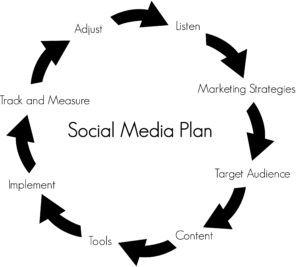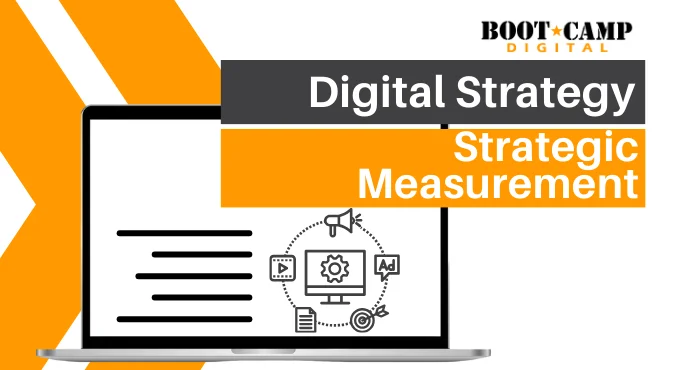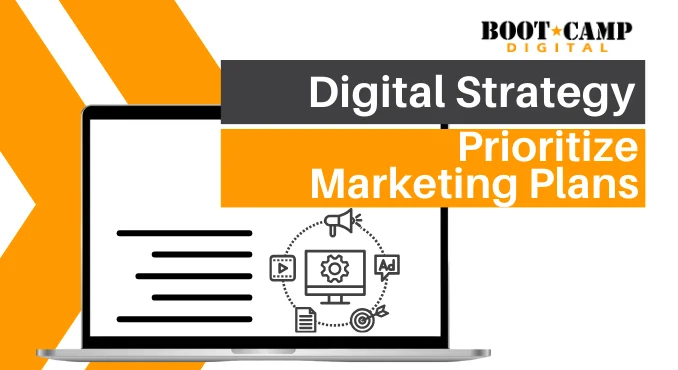I created my book, The Social Media Field Guide as a strategic tool to help businesses create and execute effective social media marketing. One of the areas where businesses need the most help is in measuring the effectiveness of their social media marketing campaigns. Whether you report to yourself or have to convince your boss, knowing what is and isn’t working with your social media marketing efforts is vital to the long-term success of your social media marketing efforts.
Measuring social media is more difficult than measuring other aspects of marketing because some of the value is difficult to define. For example, if someone Tweets that they LOVE your product can you directly link that back to sales? Probably not. You know that it is valuable, but it is difficult to link it back to direct sales. The other problem with social media measurement is that your social media efforts will likely cover a wide range of activities including PR, Marketing and Customer Service. Over time these all indirectly link back to sales, but it is very difficult to make that link back.
Social media is tricky to measure, but that doesn’t mean that you shouldn’t be measuring it. You absolutely have to measure it, but it does require a balanced approach. Here are some tips for making your social media campaigns as measurable as possible.
Start with the End in Mind
Know what you want to achieve. It is difficult to measure social media if you haven’t set clear goals and objectives. Many business claim that their social media marketing doesn’t get results because they didn’t create a social media campaign with an intent towards achieving specific goals. Use the Boot Camp Digital Social Media Planning process outlined in the Social Media Field Guide to be sure that you have set your goals upfront. When you design your social media content and select your tools, keep your goals in mind. What tools and content will help me achieve my objectives?

Build Testing In To Your Plan
Very few companies nail their social media messaging right from the beginning. It is absolutely vital to build testing in to your social media marketing efforts. Test different tools and different messages. Threadless.com tests their Twitter account extensively. They try Tweeting at different times of the day and including links in different parts of the Tweet (beginning vs. middle vs. end) to see what gets the best results. Try different content types and formats. Test everything possible to refine your strategy over time. While there is some “research” about best practices in these areas every audience is different and will respond to different things. Test your audience over time to see what THEY specifically respond to. EVERY social media marketing campaign has the opportunity to improve over time.
What to Measure – ACTION
The first thing that you want to measure is action. Action is the most basic social media metric and is important in understanding the overall effectiveness of your efforts. Action metrics focus on the action that you are taking and the frequency with which you take it. Action metrics include number of posts/tweets/updates or the frequency of the updates.
Some businesses confuse action with results.
Q: “How is your social media marketing going?”
A: “Great – we are posting every day!!!”
Just because you are active on social media does not mean that you are getting results from it, or that anyone sees it or cares about it. Action metrics don’t really get to business value, but they help you understand if you are putting the necessary effort in to get results.
What to Measure – ENGAGEMENT
Action metrics are the most basic metrics for social media marketing and they don’t necessarily have any relationship to actual business value. The next step to get closer to measuring actual business value is to measure engagement. Engagement measures how interested or engaged people are with your content. Do they read it, view it, watch it, comment on it, like it, respond to it, forward it, etc?
Engagement should be highly related to business value. If people are engaged with your content (i.e. they read it and interact with it) they are probably more likely to do business with you, but not necessarily. Engagement metrics are ONLY an indicator of business value if your content is strategically related to your business objectives.
For example, if a lawyer posted “What are your plans for the weekend?” on Facebook and 20 people responded, he might think that he is successful on social media based on the engagement (comments). The problem is that his post was not really related to legal issues, and telling him your plans for the weekend does not mean that you like or respect him more as a lawyer, or that you are more likely to do business with him.
If on the other hand the lawyer posted about a legal issue “When to engage a lawyer in a Foreclosure” and people comment, there is probably a greater chance of that post resulting in business. Since people are interacting with him about legal issues they probably think 1) he is a smart lawyer who knows his stuff and 2) they are probably interested in Foreclosures (his line of business).
So if the content is targeted there is a greater chance that engagement links to business value, but not all engagement = business value.
What to Measure – BUSINESS VALUE
The best measurement for social media is business value – are you actually transacting business as a result of social media. To get to business value you typically have to create specific campaigns that actually set out to measure this. For example, you can create social media only offers and track the results. You can ask people “how did you hear about us?” when they call. The key to tracking business value or sales is to incorporate measurement techniques into your execution.
You can also get to business value by tracking your social media activity, marketing activity and sales over time and looking for relationships.
The bottom line is that you have to track the actual business value of your social media campaign in order to know if it really is working for you.
Don’t Forget Qualitative – Use a Balanced Approach
One of the key problems with measuring social media is that not everything can be measured. People thanking you and loving you might be difficult to equate back to specific sales, but we know that it is valuable.
Don’t forget to include qualitative judgments in your measurement. Not everything that counts can be measured. Incorporate sample tweets or demonstrate how you solved problems as a way of highlighting the parts of social media that can’t be measured.
Any other thoughts? How do you measure?
PS – Don’t forget to check out my book, The Social Media Field Guide on Amazon.

















